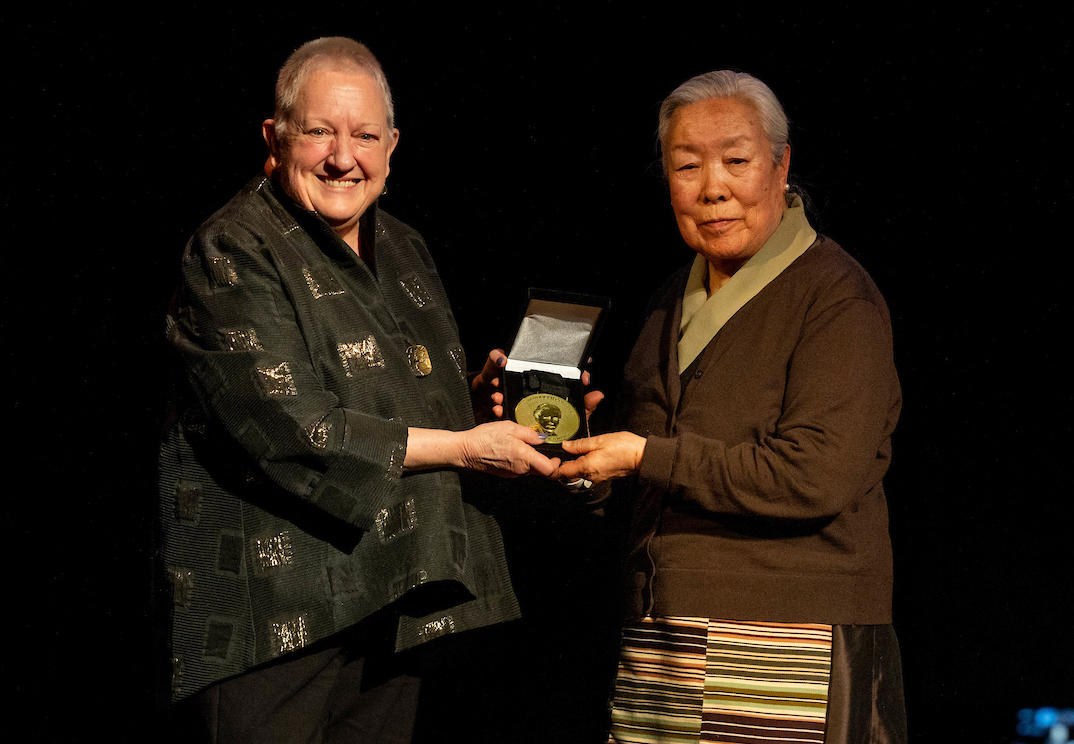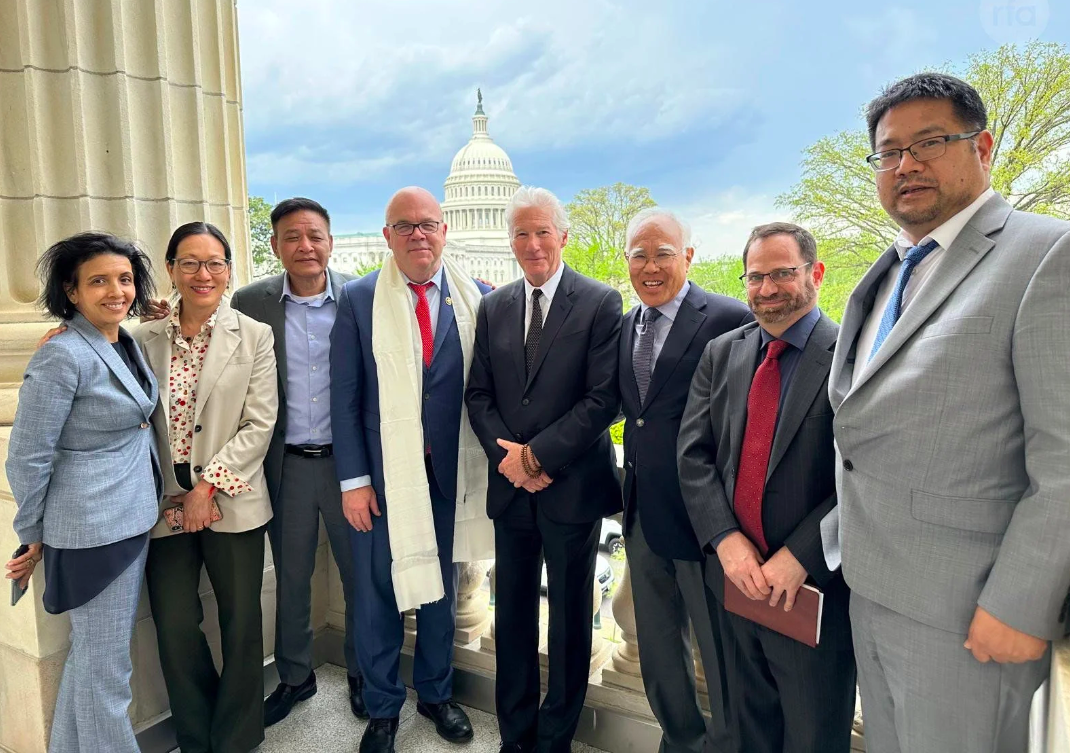 January 9»15·2003
January 9»15·2003
Vol. 18 No. 30
Thubten Samdup helps non-violent movement for independence
by KRISTIAN GRAVENOR
In 1959, China invaded and occupied the resource-rich Buddhist homeland of Tibet, and they continue to operate a brutal domination of the once peaceful land. In spite of this, Western leaders have refused to cut ties to China, for fear of alienating a huge trading partner. Unlike the IRA or the Tamil Tigers and other secessionist groups, Tibet’s independence movement, under the enormous influence of the Dalai Lama, has renounced violence.
NDG resident Thubten Samdup, or Sam as he’s known to many, has had a hand in that decision. “The message that the Dalai Lama is trying to show to the rest of the world is that violence is not the answer to human-created problems,” he says.
The temptation to resort to violence must be very strong, considering what the Tibetans have undergone. “Arbitrary arrests, beatings, torture, forced sterilizations,” says Samdup. “One Tibetan monk spent 40 years in a Chinese prison where he was regularly tortured with electric prods.”
But Samdup concedes that Tibet’s ongoing enslavement has led some to doubt the strategy of trying to shake free without bombs or guns. “Many young Tibetans are questioning the strategy these days. They think that perhaps the Dalai Lama is too naïve, that he’s trying to sell a commodity in the world where there’s no market. A lot of young Tibetans are questioning it, and feel that perhaps it’s time to stop the non-violence struggle and make some noise,” says Samdup, who argues that these terrorist-ravaged days make the ideal time to reward a political movement that renounces violence.
Samdup hasn’t set foot in his homeland since the age of 10, when his mother, a farmer, and father, a tea trader from the eastern region of Kham, fled to India as the Chinese invaded. Samdup eventually went on to America to do a degree in ethnomusicology from Brown University in Rhode Island and came here in 1980. Since then, his tireless efforts to free Tibet from oppression have been expressed through his Canada Tibet Committee, through which he has welcomed the Dalai Lama to this city twice. “The Dalai Lama has given so much promoting peace in this world. You don’t find many world leaders saying, ‘Reach out to your enemies, they are your teachers to practice your patience,’” he says.
Seeking more than moral help
“Most Tibetans would obviously want an independent and free Tibet but the Dalai Lama is on the record saying that he is not seeking independence; what he’s seeking is a genuine autonomy for the people of Tibet where they can practice their religion and culture,” says Samdup. But the lesser demands haven’t swayed the international community. “The world community always says, ‘We have a tremendous respect for the Dalai Lama, he’s a great man.’ They know what he stands for, but nobody has come forth and given the kind of support needed.”
The effort to sway the world to force China into releasing their bloodthirsty grip on the peaceful Tibetans is also a little short on resources but made some unexpected inroads in 2002. “The only way is to raise awareness of the ordinary Canadian public, where they’d feel morally outraged and make so much noise that the Canadian government is forced into doing something. But in reality that’s not possible. We don’t have the resources and manpower. So we concentrated on MPs who supposedly represent the Canadian people.”
This year, one-third of all Canadian MPs, including 20 from the ruling Liberal party, supported Samdup’s campaign to free Tibet.
“These MPs have urged Prime Minister Chrétien to take a look after everything that the Dalai Lama has done to promote peace. Canada prides itself on being a world peacemaker and defending human rights around the world. We urged the PM to take that extra step and be an honest broker between the Chinese and the Dalai Lama. Most politicians look for a legacy, so what better legacy than bringing the two parties together?” asks Samdup.
He believes that if Chrétien were to embark on such a high-minded initiative, the act wouldn’t go unnoticed. “He’d look very good. He could be nominated for a Nobel Peace Prize.” :









